Top Security Threats in Australian Retail and How Guards Mitigate Them
In Australia’s bustling retail industry, security threats are diverse and ever-evolving. From everyday challenges like theft and vandalism to more sophisticated threats involving cybersecurity, retail businesses face risks that require both expertise and adaptability to manage. Experienced security guards play a crucial role in addressing these challenges, ensuring the safety of customers, staff, and assets. This article explores the top security threats in Australian retail and how professional security guards mitigate them effectively.
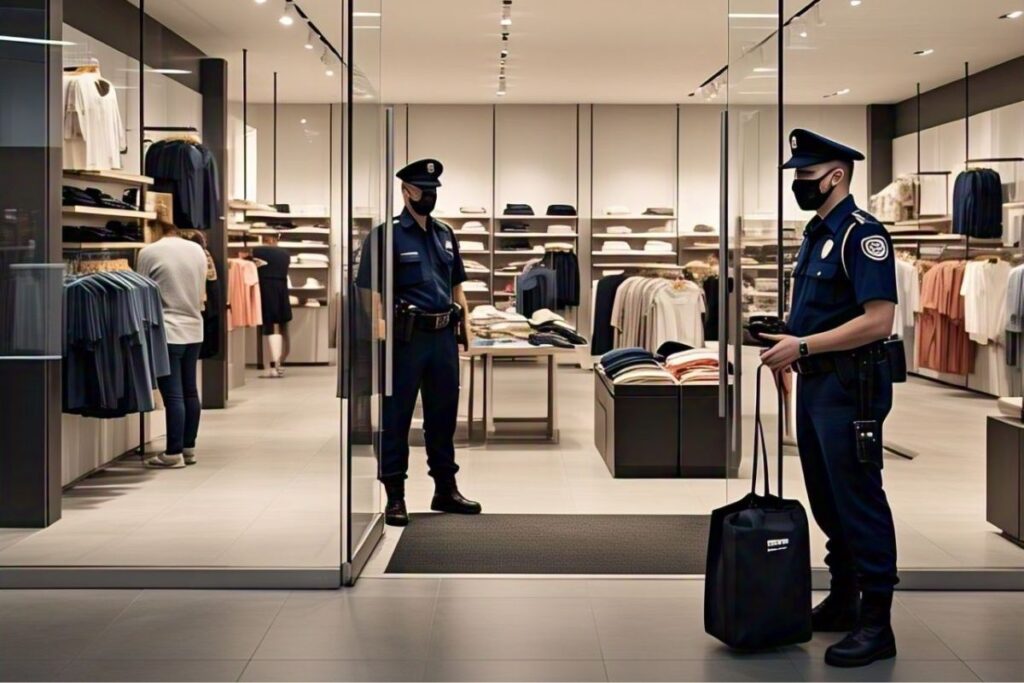
Understanding the Scope of Security Threats in Retail
Security threats in retail go beyond mere theft; they encompass various issues such as employee fraud, property damage, cyber threats, and violent confrontations. Each threat requires a tailored approach from guards who are trained to anticipate, recognize, and respond to incidents swiftly and professionally. Knowledge of different types of security guard services available in Australia can help business owners choose appropriate solutions to address these specific risks effectively.
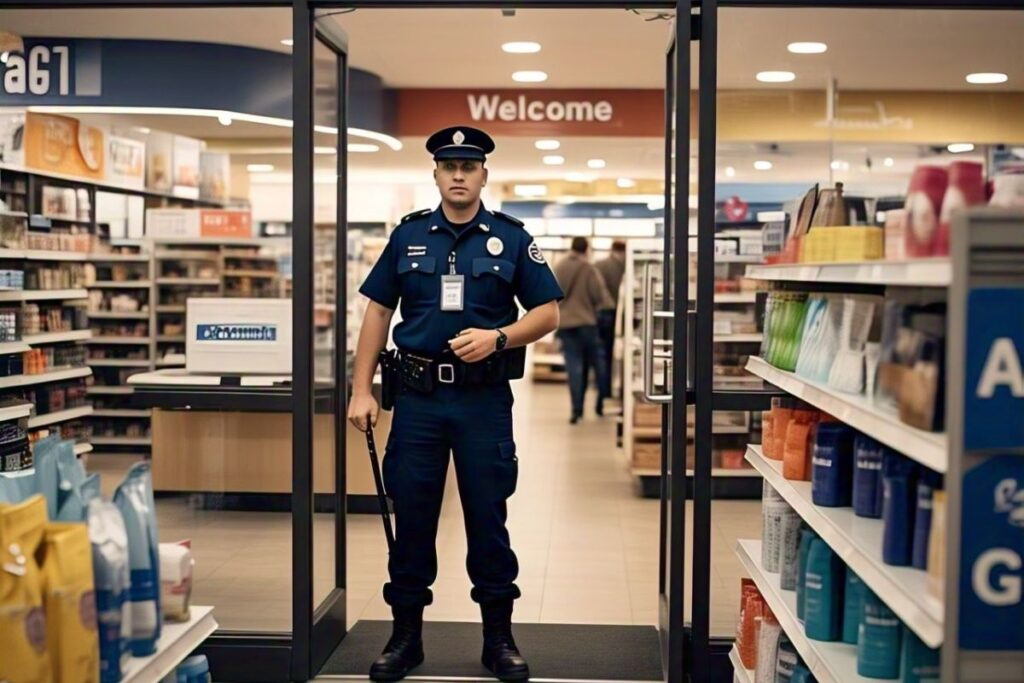
Shoplifting and Theft: A Persistent Retail Challenge
Shoplifting is one of the most frequent issues retailers face, with incidents ranging from casual “grab-and-go” thefts to coordinated group theft. Security guards serve as a visible deterrent, which alone can reduce shoplifting attempts. They monitor high-risk areas and are trained to recognize suspicious behaviors, acting discreetly to prevent escalation. Guards also collaborate with store employees to identify common shoplifting tactics, providing continuous training to staff on effective theft prevention. How to Establish a Security Guard Business in Australia offers insights for those interested in exploring security services as a business solution for retail security challenges.

Managing Employee Theft and Internal Fraud
Employee theft can be particularly damaging to retailers, as it often goes undetected for extended periods. This type of theft can take many forms, from unauthorized discounts to outright cash skimming. Security guards help mitigate this risk by performing regular inventory checks, monitoring sensitive areas like stockrooms, and assisting in enforcing strict access controls. Their presence discourages dishonest behaviors and fosters a culture of accountability. Guards also collaborate with management to implement reporting systems that allow other employees to safely report suspicious activities, thereby creating a secure and ethical work environment.

Addressing Vandalism and Property Damage
Vandalism, particularly in high-traffic or high-risk areas, is a significant concern for Australian retailers. Whether it involves graffiti, broken windows, or tampering with store property, vandalism harms both a store’s image and its finances. Security guards patrol the premises regularly, monitor surveillance feeds, and report any signs of vandalism or trespassing. They are also trained to respond quickly to vandals, minimizing property damage through their prompt action. By addressing vandalism proactively, guards help retailers maintain a professional appearance and minimize unnecessary repair costs.

Robbery and Violent Incidents: Ensuring Safety in High-Risk Situations
Robberies pose a serious threat to retail businesses, as they often involve aggressive and potentially dangerous confrontations. Security guards are trained in de-escalation techniques, which enable them to handle tense situations calmly and reduce the risk of harm. In a robbery scenario, guards are prepared to assist with evacuation, provide immediate support to affected individuals, and secure the scene until law enforcement arrives. Their quick, measured response ensures the safety of both employees and customers, while also protecting assets from theft or damage. To further understand how guards handle high-stakes situations, the responsibilities of security guards in Australia offers an overview of the training and protocols guards follow.
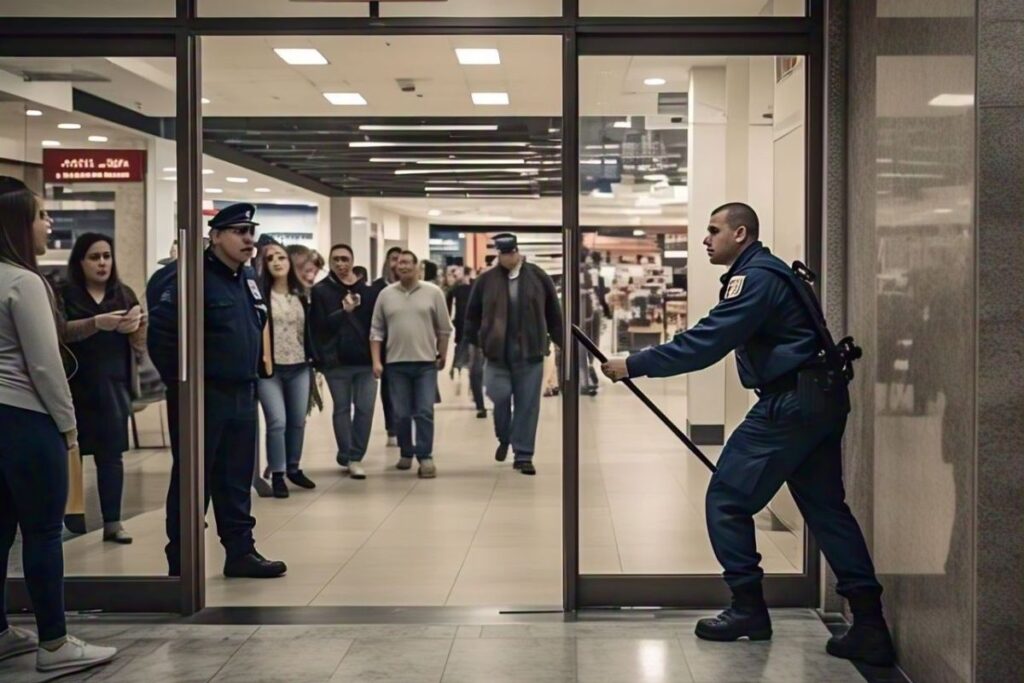
Cybersecurity Threats and Digital Fraud in Retail
With the rapid digitization of retail, cyber threats have become a growing concern. Hackers may attempt to access sensitive customer information, compromising both privacy and trust. While cybersecurity primarily falls under the domain of IT, security guards play a supporting role by enforcing physical security measures that limit unauthorized access to sensitive areas, such as server rooms. Guards also help monitor for any suspicious behavior from employees or visitors who may have access to digital systems. This holistic approach, combining IT security with physical security protocols, significantly reduces the risk of digital fraud and data breaches.
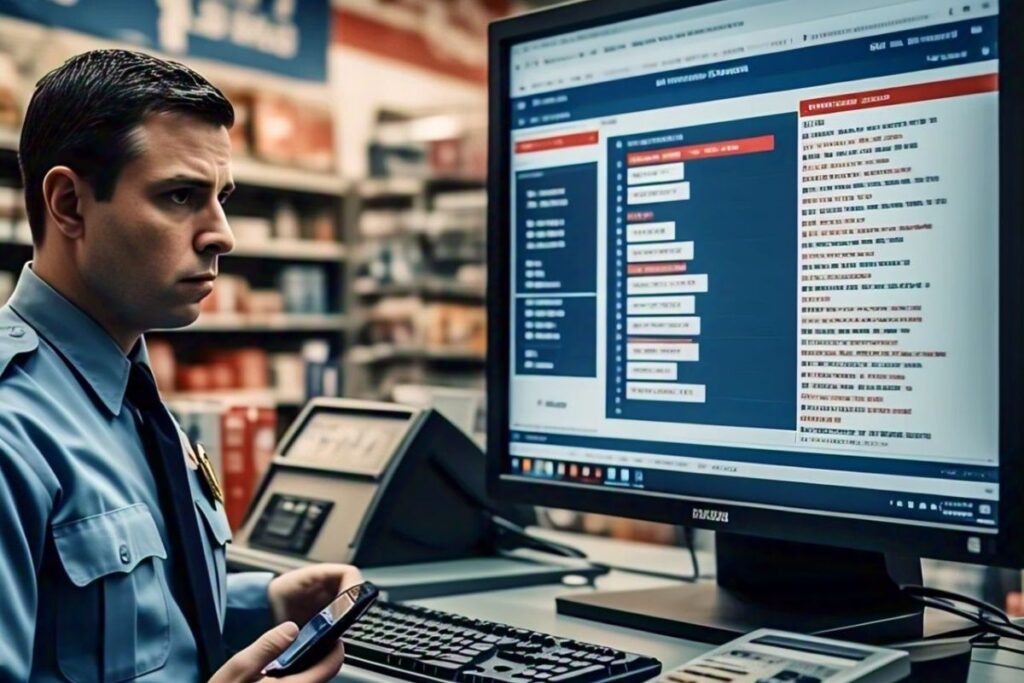
Counterfeit Money and Fraudulent Transactions
Counterfeit money and credit card fraud represent another ongoing challenge for retailers, leading to substantial financial losses. Security guards are trained to identify counterfeit currency and fraudulent behaviors, closely observing customer interactions at the point of sale. Their expertise allows them to quickly spot inconsistencies, helping to prevent the acceptance of counterfeit money or stolen cards. In cases of repeated fraud attempts, guards often collaborate with law enforcement to create a preventative action plan, which includes alerting nearby businesses to emerging fraud patterns and ensuring heightened vigilance during high-traffic periods.
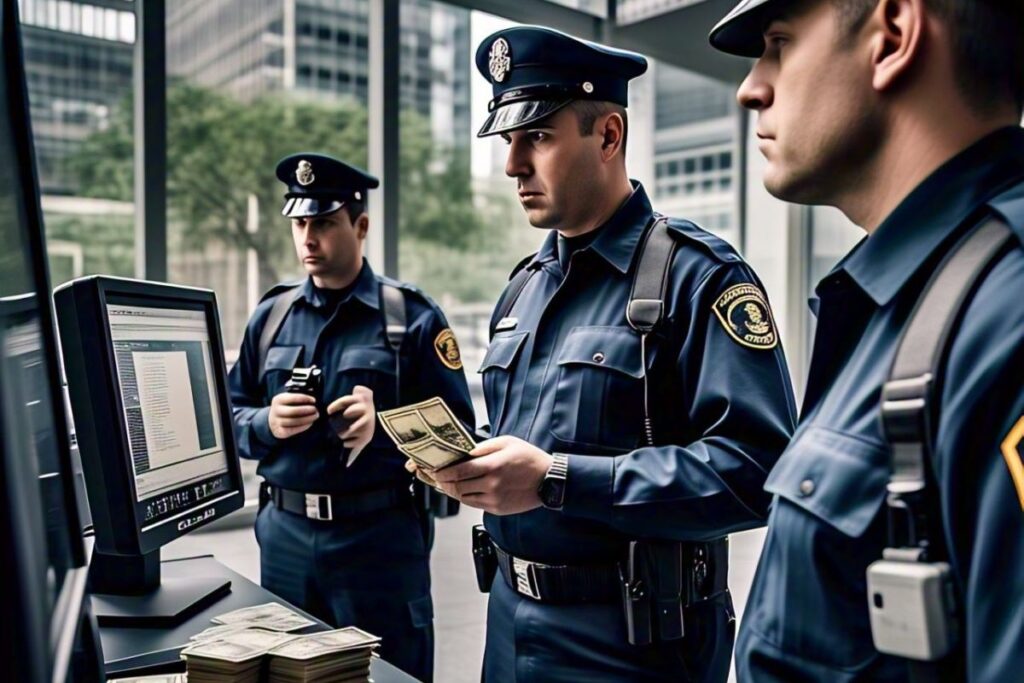
Crowd Management During Sales and Promotional Events
Sales events attract large crowds, which increases the risk of shoplifting, altercations, and accidents. Security guards play an essential role in maintaining order by directing customer flow and preventing overcrowding. They manage entry and exit points and provide assistance during emergencies, ensuring that customers feel safe throughout the shopping experience. Trained in crowd control techniques, guards respond quickly to any disputes or hazards, creating a safer environment even during peak shopping hours. The Role of K-9 Units in Security Guard Services can be beneficial in large events, where these specialized units assist guards in deterring crime and enhancing safety.
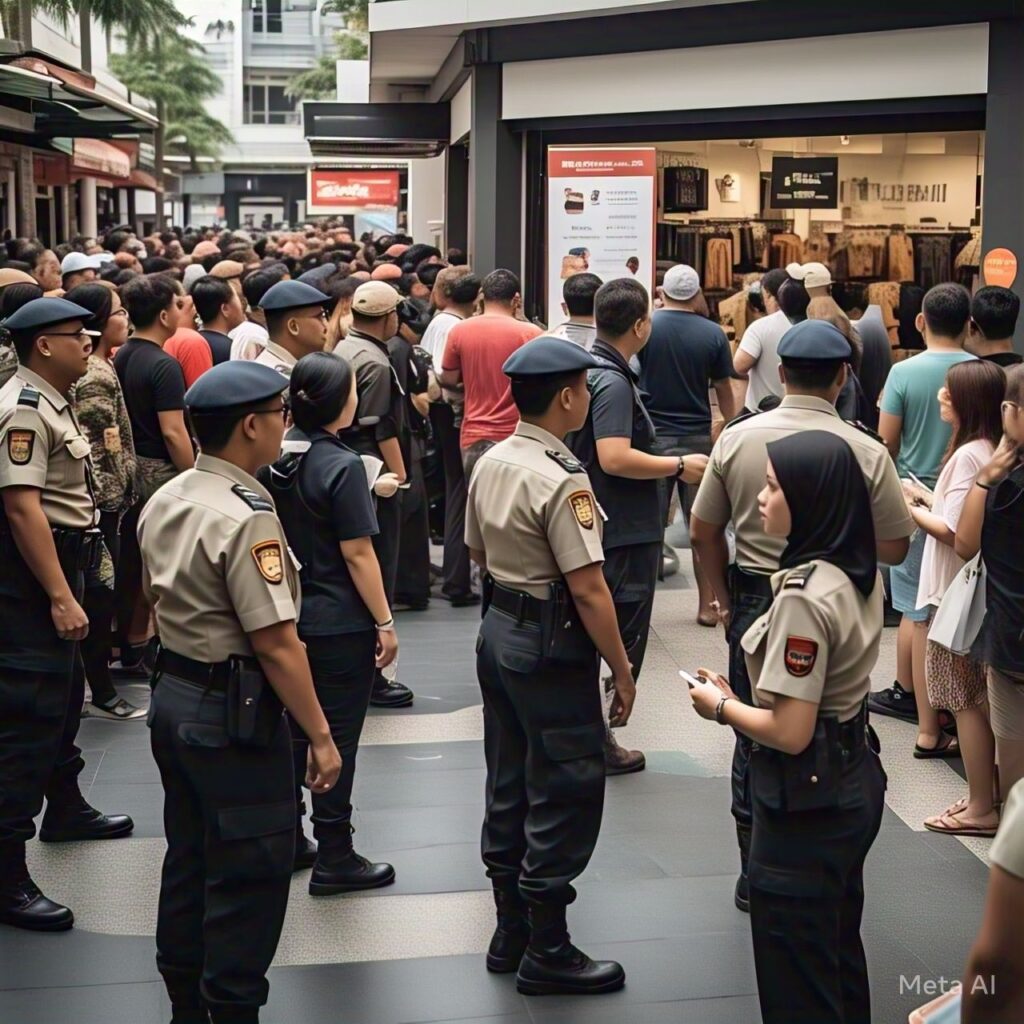
Handling Suspicious Packages and Safety Risks
Suspicious packages can present a significant threat to retail environments, especially with the increasing frequency of threats in urban areas. Security guards receive specialized training on identifying and handling suspicious packages, ensuring they manage the situation carefully without causing alarm. They are skilled at isolating areas if necessary and coordinating with bomb disposal experts if a real threat is detected. Their expertise in recognizing and dealing with potentially dangerous situations safeguards customers and staff alike. For more insights, refer to How Security Guards Handle Suspicious Packages: A Comprehensive Guide, which provides a step-by-step approach to threat management.
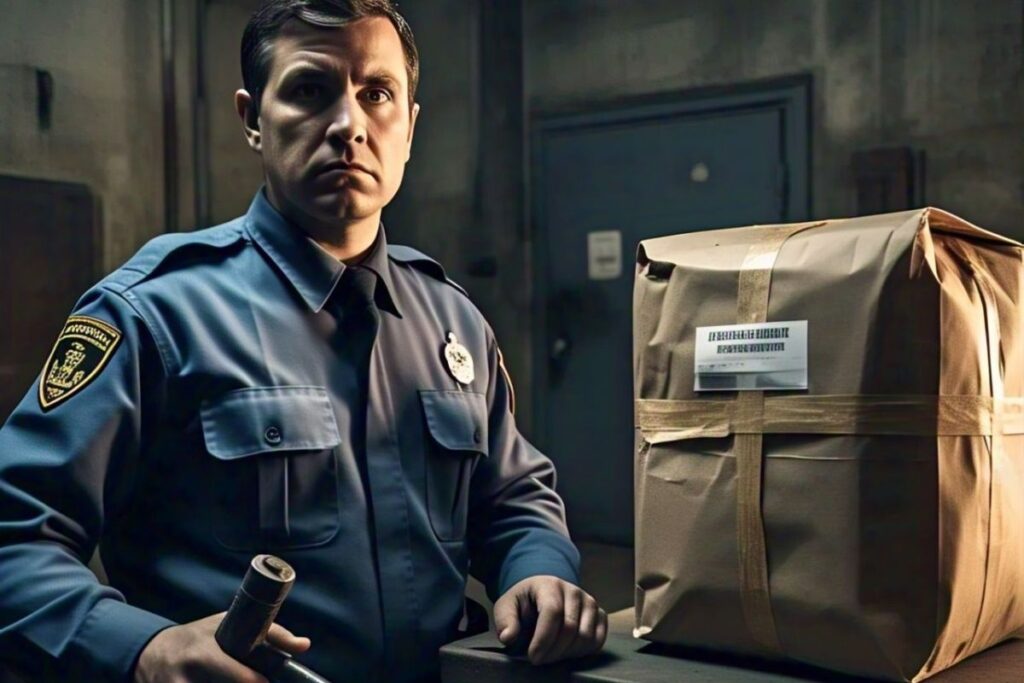
Ensuring Health and Safety Compliance in Retail Environments
Security guards are often tasked with upholding health and safety standards in the retail environment. They inspect for hazards, enforce protocols, and provide assistance in emergencies, creating a safe shopping environment. Guards play a proactive role in identifying issues that may lead to accidents, such as spills or obstructed pathways, and take immediate action to rectify them. Their attention to detail and commitment to safety helps retailers avoid costly legal claims while ensuring a pleasant experience for customers.
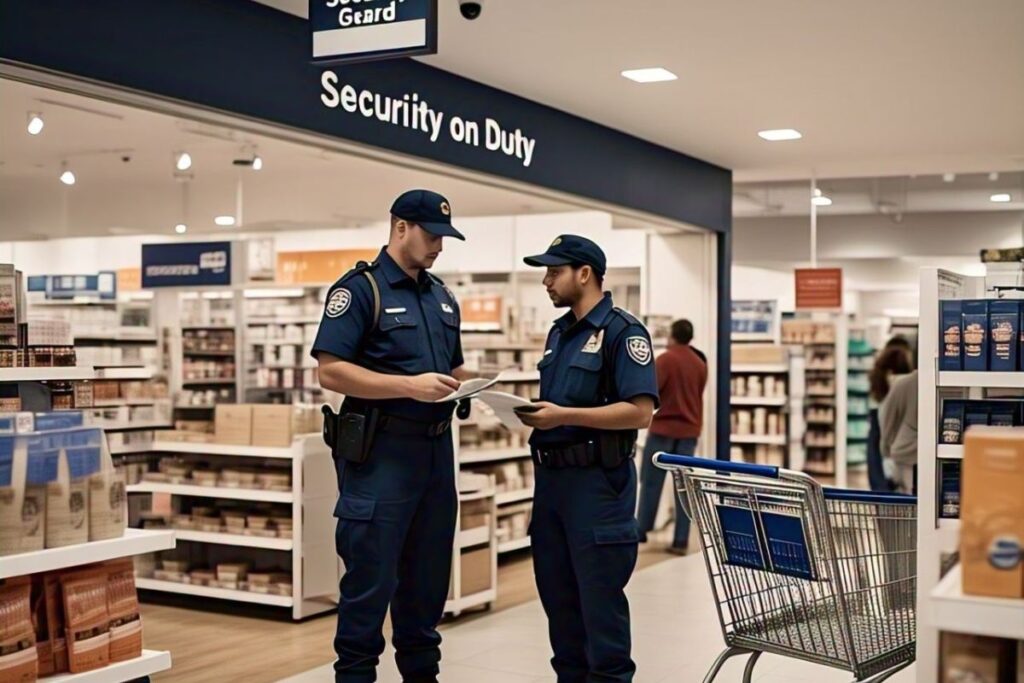
Conclusion
The role of security guards in retail is multifaceted, encompassing everything from theft prevention and crowd control to emergency response and safety management. For retailers, investing in professional security services means more than just protection—it fosters a safer, more welcoming shopping environment and enhances customer trust. To explore comprehensive security solutions for your business, visit the services page on Security Guard Services’ website for tailored services that align with your specific needs.

